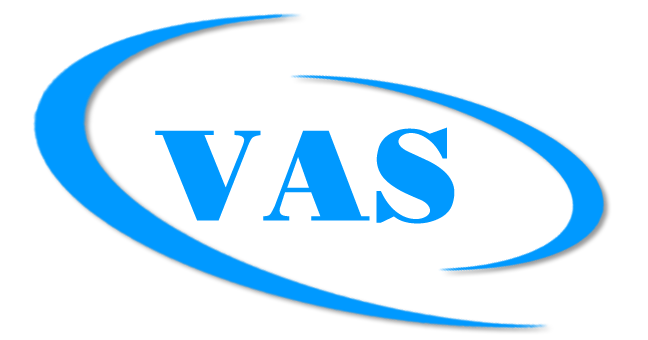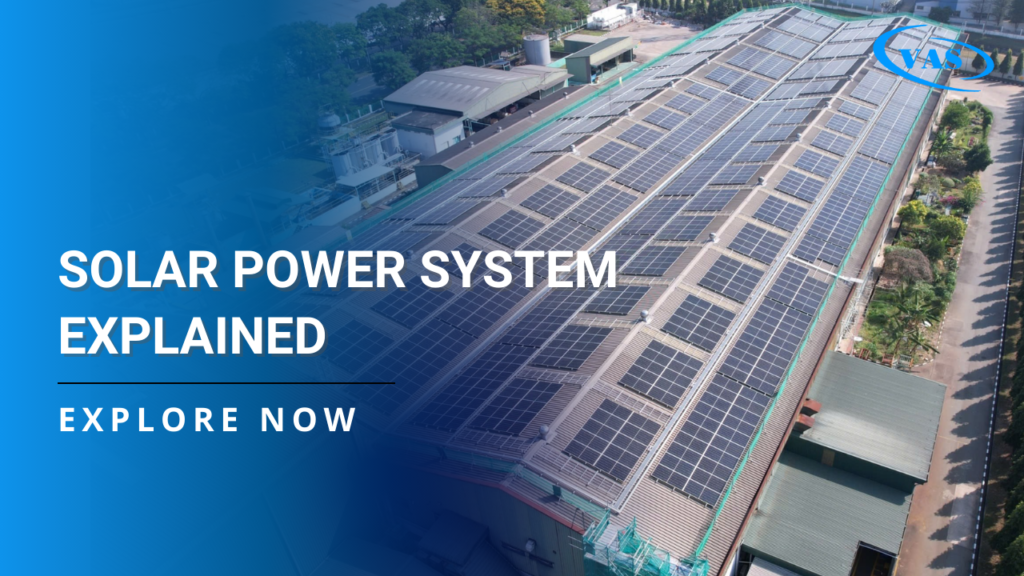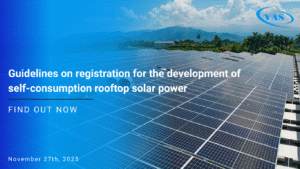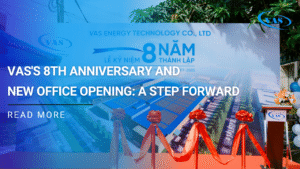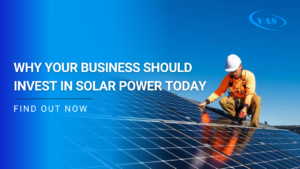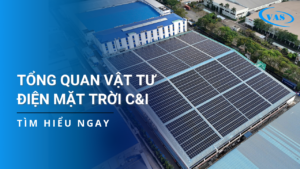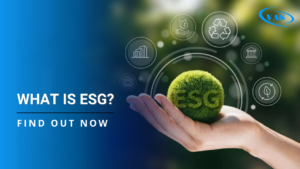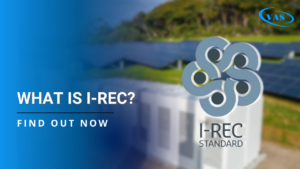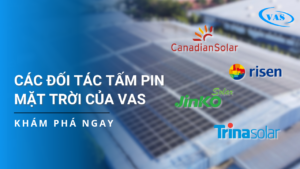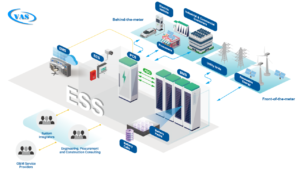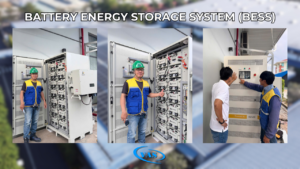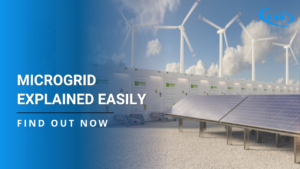In a context where generating electricity from fossil fuels (coal, natural gas, etc.) is severely harming the environment, clean energy sources like solar and wind power are becoming increasingly cost-effective and efficient alternatives. Solar power systems, in particular, are gaining popularity in Vietnamese factories.
Have you ever wondered what a solar power system is? How does it work? What are its benefits and applications? Let’s explore this topic in detail with VAS.
I. What is a Solar Power System?
The solar power system, also known as photovoltaic (PV) systems, applies the process of converting sunlight into electrical energy for businesses and households. Unlike fossil fuels, this is a clean energy source that does not produce harmful CO2 emissions during production, making it particularly cost-effective for businesses.
But how exactly is solar electricity generated?
II. How it works
Key components:
To understand how solar power is generated, let’s look at the basic components of a solar power system:
Solar Panels:
- Function: This is an important component of the system, responsible for directly absorbing sunlight and converting it into direct current (DC).
- Structure: Composed of many solar cells connected in series to form a solar panel. The main component of these solar cells is primarily pure silicon.
Explore the solar panel products that VAS is offering.
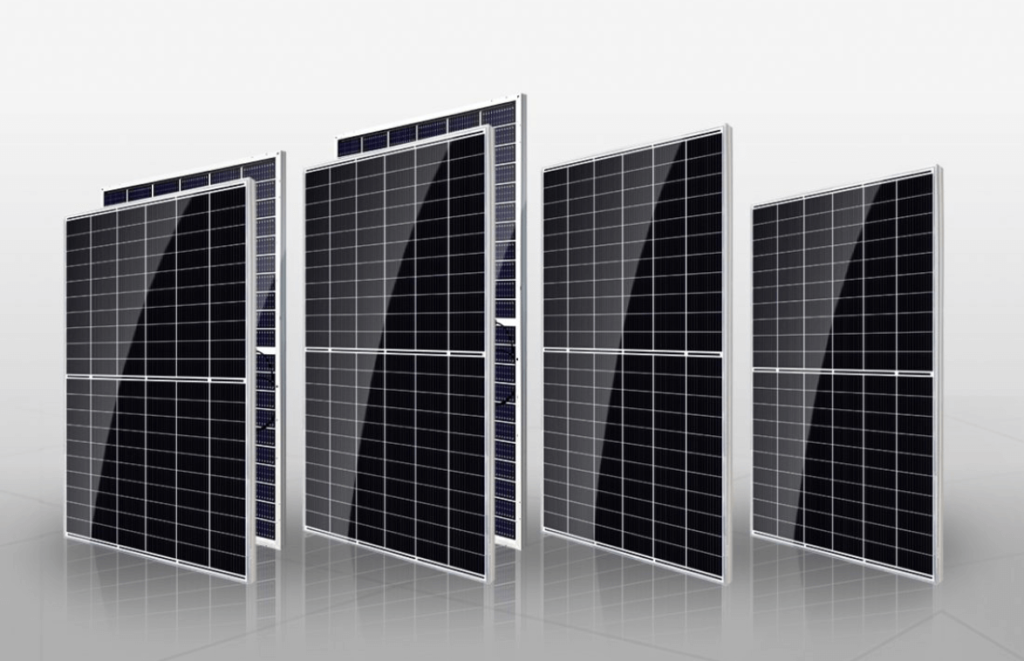
Inverter
- Function: As one of the essential components, the inverter plays a role in converting direct current (DC) from the solar panel into alternating current (AC), which is commonly used by electrical devices in households or businesses.
Explore the inverter products offered by VAS.
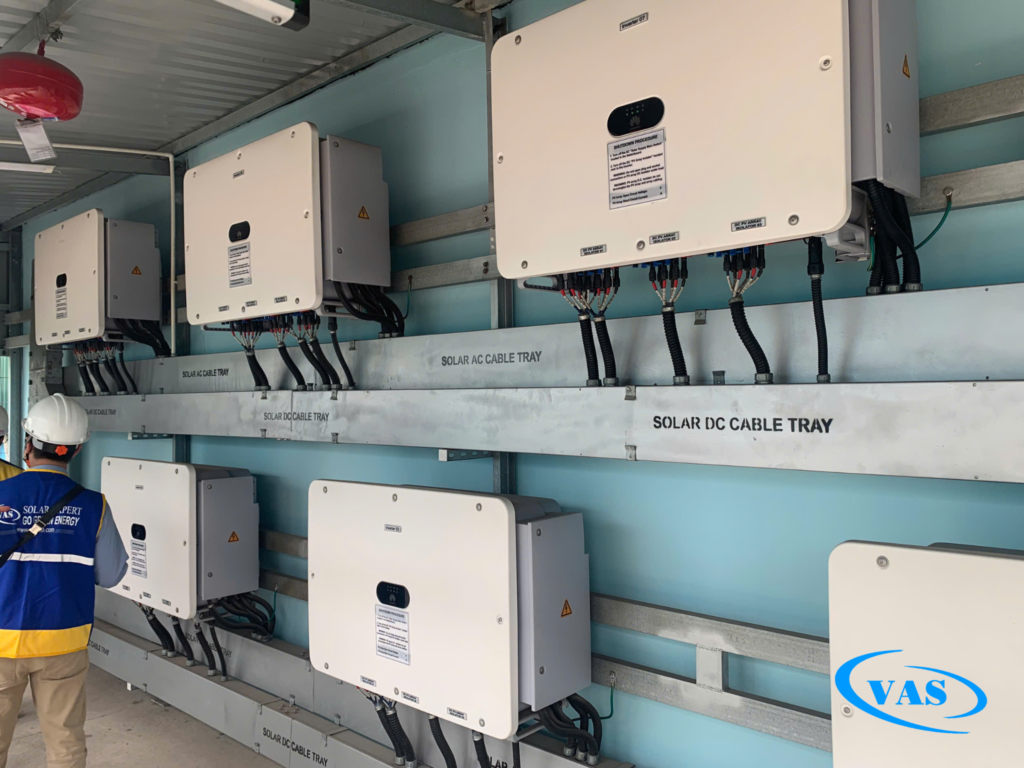
Energy Storage System (ESS)
- Function: Acting as a “power bank,” the system allows us to store electricity generated from solar panels during times of low electricity prices or high electricity production for use when there is no sunlight or when the power supply is interrupted (power outage).
Explore the VAS storage systems currently available.
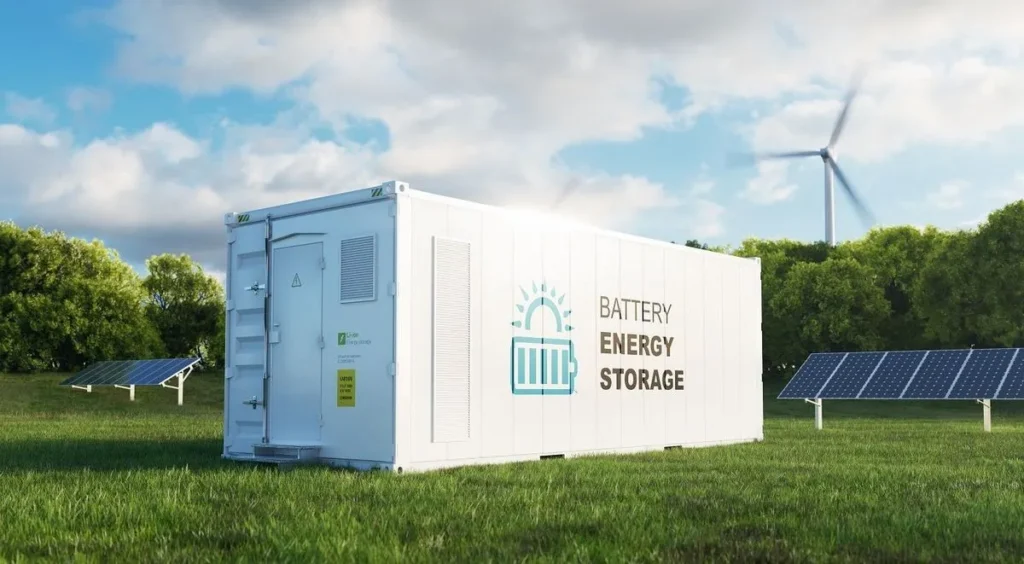
Other accompanying accessories: Stand, wire frame, rail bar,…
- Function: These accessories support the assembly and connection of components in the solar energy system, helping to ensure electrical safety during operation.
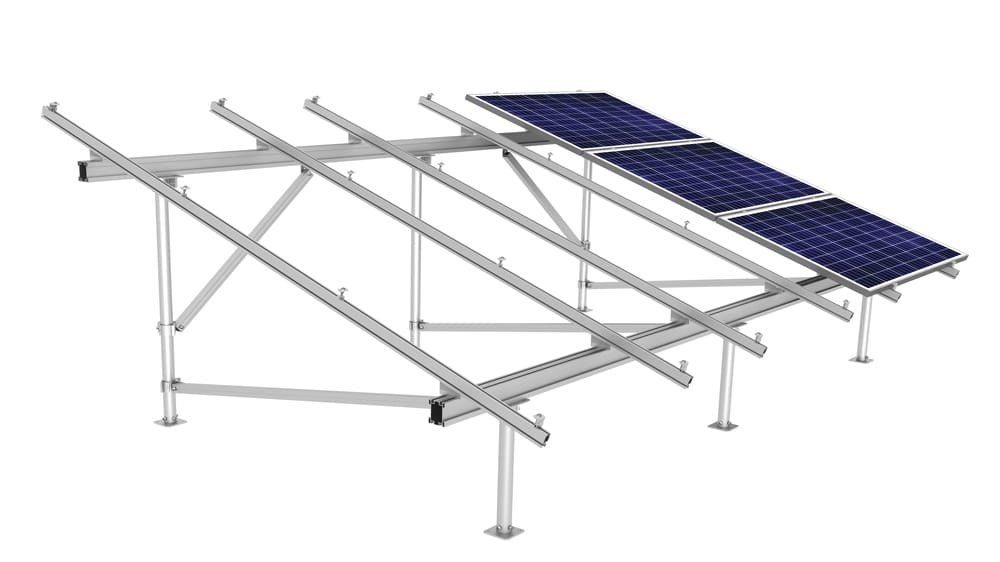
- Operating principle:
The main components of a solar power system allow us to outline the basic operating process as follows:
First, the technical staff install the solar panels on the roof or in areas that receive the most sunlight. Once the system is ready to operate, sunlight (photon energy rays) hits the panels and generates direct current (DC).
This direct current (DC) then passes through an inverter and is converted into alternating current (AC).
This alternating current is used to fully charge the energy storage system and subsequently supply power to electrical devices or feed into the national grid.
III. Advantages of solar power systems
Cost savings:
- Solar energy systems can provide and meet the energy needs of businesses and households. Electricity bills are significantly reduced, resulting in substantial savings in expenses.
- The initial investment cost may be high; however, the payback period is relatively short, around 4-5 years, depending on the region and project.
- In particular, businesses and factories will receive free maintenance for the first two years if they use VAS’s solar panel installation services.
Explore our comprehensive solar power solutions, from installation to maintenance, at VAS.
Sustainable and eco-friendly
- Solar power systems operate based on sunlight, and do not burn fossil fuels, therefore they do not emit harmful gases such as CO2 and SO2, contributing to environmental protection and reducing the greenhouse effect.
- Unlike electricity generated from fossil fuels like coal, gas, and oil, which are limited and depleting resources, sunlight is an infinite and free energy source.
High stability and reliability:
- Long lifespan: Solar power systems typically have a lifespan of 25-30 years.
- Weather resistance: Solar panels are designed to be robust and durable, capable of withstanding harsh weather conditions.
Adding value to a building or business:
- The use of solar power systems to supply energy for factories and businesses not only demonstrates modernity and sophistication but also shows responsibility for environmental and social protection. This positively improves the public brand image.
IV. Applications of Solar Power Systems
Currently, solar power systems can be applied in all areas where there is a need to save on electricity costs and utilize green energy, such as:
In residential use:
- Providing electricity for households and home appliances such as lights, fans, refrigerators, air conditioners, etc. This helps reduce electricity bills and increases energy independence for household electricity consumption.
In industry:
- Supplying electricity for factories and enterprises: Businesses can install large-scale solar power systems to become self-sufficient in energy, reduce production costs, and contribute to environmental protection.
In agriculture:
- Irrigation: Installing solar-powered water pump systems to support more efficient irrigation, especially in rural areas and remote regions.
- Cooling greenhouses: Helping to maintain a stable temperature in greenhouses, creating favorable conditions for crops to thrive and develop.
V. Installation Process
At VAS, the installation process for solar power systems is always strictly monitored and includes several stages, from surveying and designing to construction and operation. Below is the detailed process:
Investment Consultation:
- Introduction of solutions, equipment, and technology.
- Advising on the most effective solutions based on the customer’s needs and conditions.
- Helping investors understand the maximum capacity that can be installed and the expected output that the system can provide.
Surveying & Design:
- VAS specialists conduct field surveys and assess environmental conditions to optimize the system data.
- The survey results will be calculated, and the system will be designed, providing a break-even point for the investor.
Installation:
- VAS’s team is directly responsible for the installation, ensuring the system’s coherence.
- Monitoring the construction, ensuring progress, and handing over the entire system to the investor.
System Warranty and Maintenance:
- VAS provides operational guidance, technology transfer, and helps customers understand and master the system.
- VAS specialists assist customers in monitoring and supervising the system.
- VAS commits to long-term warranty on equipment, performance, and technical support.
Learn more about VAS’s solar energy system installation projects.
VI. Conclusion
With the outstanding benefits that solar energy systems provide, transitioning to this clean energy source is not just an option, but a pressing necessity. Not only does it save costs and protect the environment, but you are also contributing to building a sustainable future for the next generation. Don’t hesitate, contact VAS immediately at the hotline: 0766666480 for consultation and to acquire an efficient, optimized solar energy system for your business. With extensive experience and hundreds of successful projects, we are committed to providing you with comprehensive energy solutions.

 Tiếng Việt
Tiếng Việt 中文 (中国)
中文 (中国)